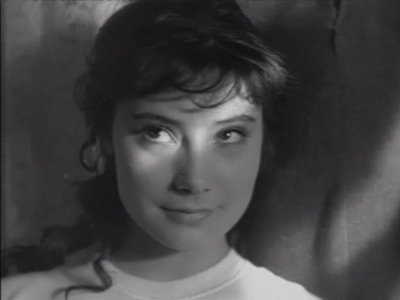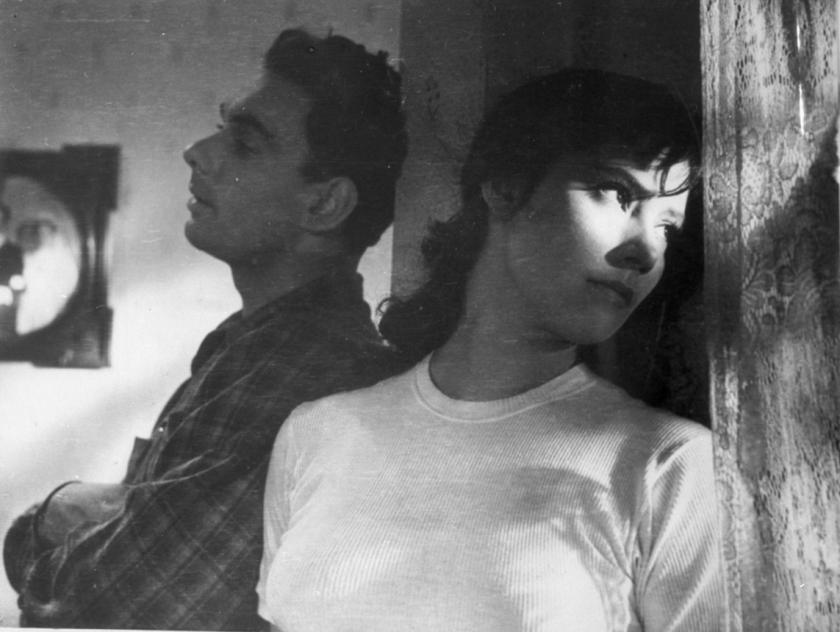The Cranes Are Flying begins with the literal rush of young love, as Boris and Veronica skip down a street, giddy with endorphins. They could be infatuated young Americans in the rock’n’roll year of its making, 1957. But this is Moscow in 1941, as a radio announces Russia is at war, and Boris (Alexei Batalov) volunteers for the front. The chaotic crush of women saying goodbye to men, in which Veronica (Tatiana Samoilova) can’t quite reach him, heartbreakingly brings home war’s human cost, as do later scenes of Moscow’s equivalent to VE Day – another visceral spectacle of overwhelming emotion.
While Boris slogs at the front, Veronica is left at the mercy of his infatuated, draft-dodging cousin Mark (Aleksandr Shvorin). His aggressive pursuit reaches an operatic peak when they’re alone during a nightmarish air raid. Such scenes can look overwrought, but there’s a grim wartime logic and tender morality to the melodrama. Director Mikhail Kalatozov and cinematographer Sergei Urusevsky film with skewed angles and close-ups, rushing through crowds with hand-held cameras.
 Though set during the Great Patriotic War, this was made during Khrushchev’s brief post-Stalin thaw. Families are derisive of would-be commissars and parody pompous propaganda talk. Veronica tells Boris she’s only afraid of “the militia”. But the film’s greatest reach for freedom resides in Samoilova’s performance. Coltish, coquettish and impetuous at first, war’s sacrifices and humiliations leave her martyred and stern in widow’s black, and still more luminously beautiful. She’s as insistently alive as her Italian contemporary, Fellini favourite Giulietta Masina, and a modern star. Adored when The Cranes Are Flying won Cannes’s 1958 Palme d’Or, Soviet pressure made her spurn numerous international offers. She can still be seen sometimes on Russian TV. Her role here rehumanised her country’s cinema.
Though set during the Great Patriotic War, this was made during Khrushchev’s brief post-Stalin thaw. Families are derisive of would-be commissars and parody pompous propaganda talk. Veronica tells Boris she’s only afraid of “the militia”. But the film’s greatest reach for freedom resides in Samoilova’s performance. Coltish, coquettish and impetuous at first, war’s sacrifices and humiliations leave her martyred and stern in widow’s black, and still more luminously beautiful. She’s as insistently alive as her Italian contemporary, Fellini favourite Giulietta Masina, and a modern star. Adored when The Cranes Are Flying won Cannes’s 1958 Palme d’Or, Soviet pressure made her spurn numerous international offers. She can still be seen sometimes on Russian TV. Her role here rehumanised her country’s cinema.
The Cranes Are Flying could be propaganda for a better Soviet Union, presenting a national ideal not imposed by dictators, but self-made by its people’s warm-blooded wartime sacrifice; an experience remembered even by its young cast (Samoilova was evacuated from besieged Leningrad), and never shown so intimately on screen before. Romantic and redemptive, it’s still wonderfully fresh.













Add comment